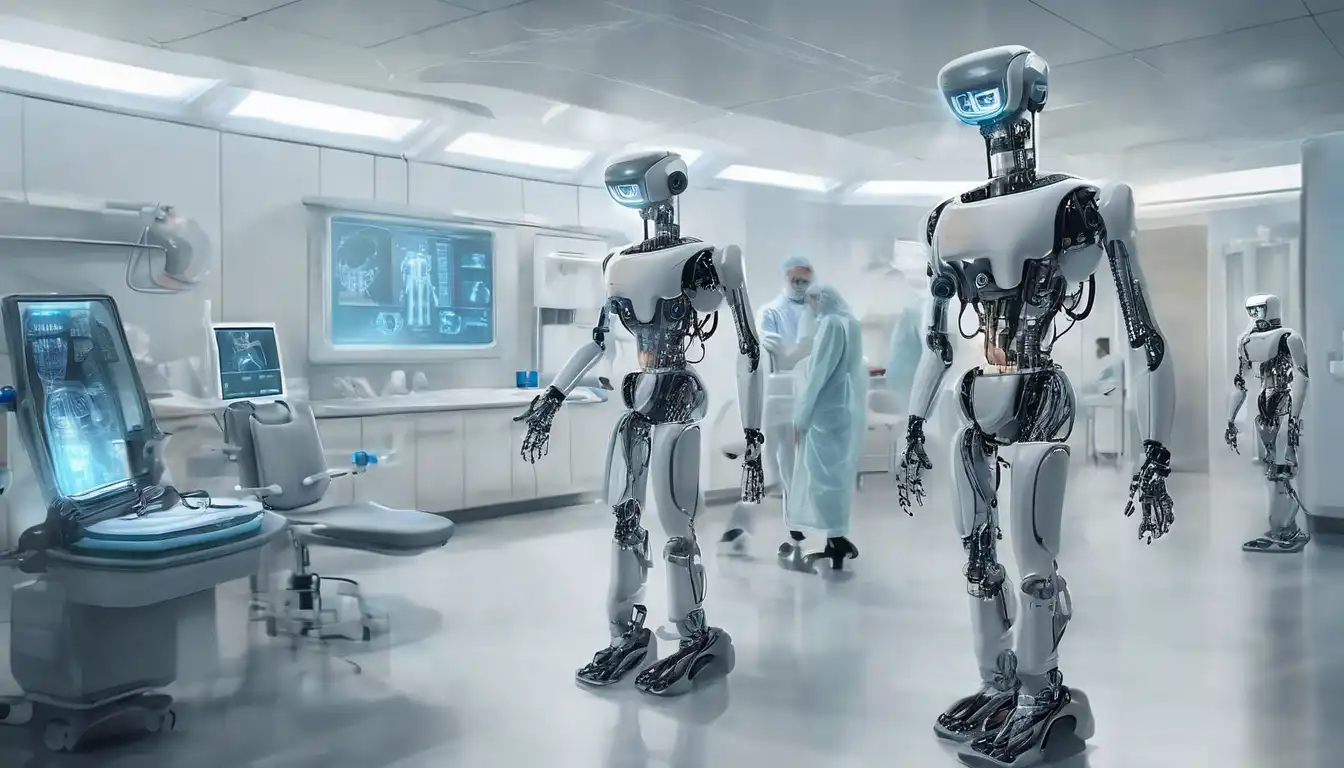The Next Era of Robotics in Healthcare
The integration of robotics into healthcare is transforming patient care, surgical procedures, and rehabilitation processes. This revolutionary approach is not just enhancing efficiency but also improving the accuracy and outcomes of medical treatments. As we delve into the future, the potential of robotics in healthcare seems boundless, promising a new era of medical excellence.
Transforming Surgical Procedures
Robotic surgery has become a cornerstone of modern medical practices, offering precision that surpasses human capabilities. With systems like the Da Vinci Surgical System, surgeons can perform complex procedures with minimal invasiveness, reducing recovery times and improving patient outcomes. The future holds even more advanced systems, capable of performing surgeries with unprecedented precision and autonomy.
Enhancing Patient Care
Robots are not just operating in the OR; they're also playing a crucial role in patient care. From robotic exoskeletons aiding in rehabilitation to companion robots providing emotional support, the scope is vast. These innovations are making healthcare more accessible and personalized, ensuring patients receive the care they need when they need it.
Streamlining Healthcare Operations
Beyond direct patient care, robotics is streamlining healthcare operations. Automated pharmacy systems, robotic disinfectants, and logistics robots are reducing human error and increasing efficiency. This not only cuts costs but also allows healthcare professionals to focus more on patient care rather than administrative tasks.
The Role of AI in Robotics
Artificial Intelligence (AI) is the driving force behind the next generation of healthcare robotics. AI-powered robots can analyze vast amounts of data to assist in diagnosis, treatment planning, and even predict patient outcomes. This synergy between AI and robotics is setting the stage for a future where healthcare is more predictive, personalized, and precise.
Challenges and Ethical Considerations
Despite the promising future, the integration of robotics in healthcare is not without challenges. Ethical considerations, such as patient privacy and the delegation of life-saving decisions to machines, are hot topics. Additionally, the high cost of robotic systems poses a barrier to widespread adoption, especially in developing countries.
Looking Ahead
The future of robotics in healthcare is bright, with continuous advancements paving the way for more innovative applications. As technology evolves, so too will the capabilities of robotic systems, further revolutionizing the way we approach healthcare. The key will be to navigate the challenges wisely, ensuring that the benefits of robotics are accessible to all.
In conclusion, the next era of robotics in healthcare promises to enhance every facet of patient care, from surgery to rehabilitation and beyond. By embracing these technologies, we can look forward to a future where healthcare is more efficient, effective, and equitable.
